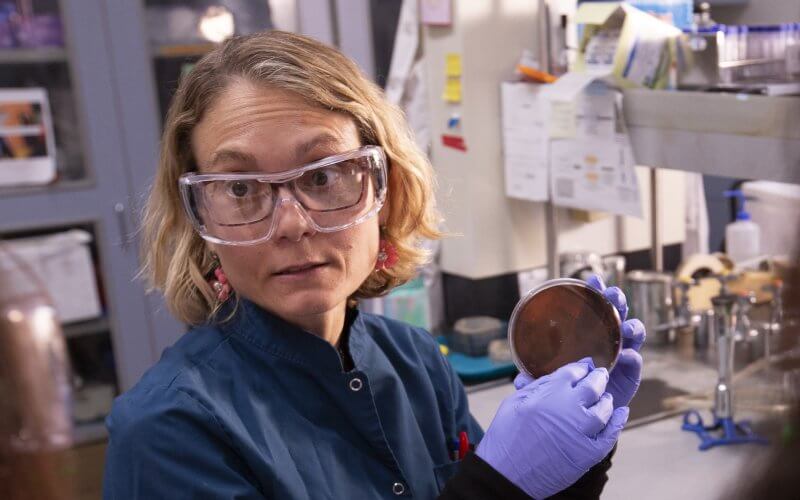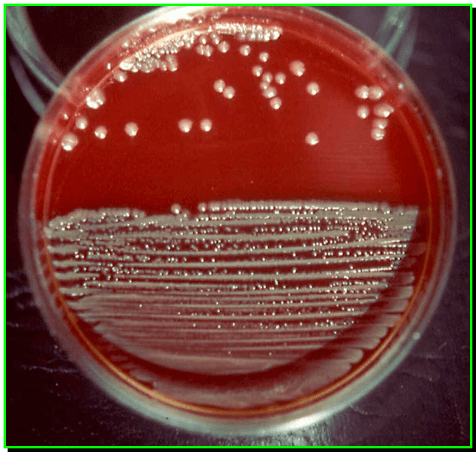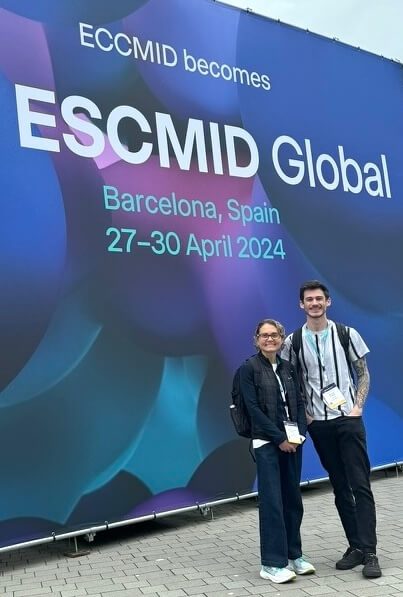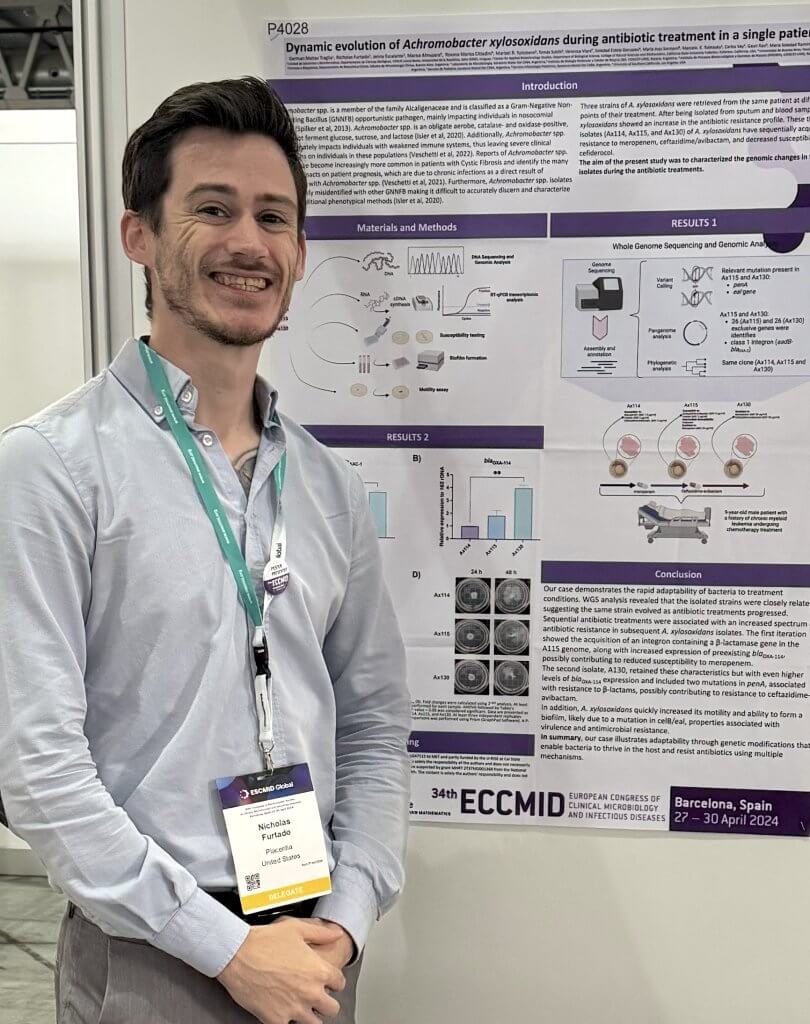
A new study by Cal State Fullerton faculty and student antibiotic-resistance researchers describes emerging multidrug-resistance in Achromobacter xylosoxidans, an opportunistic pathogen causing life-threatening infections in immunocompromised patients.
Nic Furtado, a Class of 2024 biological science graduate and U-RISE Program scholar, is the lead author of the research accepted for publication in the International Journal of Antimicrobial Agents and published online.
“The bacterium Achromobacter xylosoxidans causes respiratory tract infections and is an emergent multidrug-resistant pathogen with limited treatment options,” said María Soledad Ramírez, professor of biological science, Furtado’s research adviser.

The researchers identified mechanisms potentially responsible for multidrug-resistance in a patient with leukemia who developed resistance to all antibiotics currently available for treatment.
Furtado conducted lab experiments and bioinformatics analyses, or computational tools, to identify the basis of antibiotic-resistance development, explained Ramírez, a co-author of the study.
“Antibiotic-resistant pathogens, known as superbugs, are a global issue that the Centers for Disease Control and Prevention considers a high priority and is monitoring very closely,” Ramírez said.
“Our research identifies that certain bacteria have the potential to not only adapt over time post-treatment but can also rapidly adapt to their environment when placed under pressure in a single patient during treatment.”

The paper’s other Cal State Fullerton co-authors are Marcelo E. Tolmasky, professor of biological science; biology graduate student Carolina Dominguez Maldonado; and alumna Jenny Escalante ’19, ’23 (B.S. biological science-cell and developmental biology, M.S. biology). The CSUF researchers collaborated with antibiotic-resistance experts from Uruguay and Argentina.
Furtado added that the research contributes to the need to develop successful treatments for antibiotic-resistant bacteria.
Furtado and Ramírez presented the study’s findings this spring at the European Society of Clinical Microbiology and Infectious Diseases meeting in Barcelona, Spain, hosted by ESCMID Global.
“We wanted to present our results to bring to light the ability of bacteria to develop resistance to antibiotics while a patient is undergoing treatment. Our findings are important when looking at hospital-acquired infections,” Ramírez said.
From Veteran to Infectious Disease Researcher
Furtado begins a postbacculaurate program at Tufts University School of Medicine this summer and will study viral diseases. He plans to pursue a doctorate and aspires to a career studying infectious diseases, specifically HIV.
A student researcher in last summer’s Minority Health and Health Disparities Research Training Program (MHRT), directed by Tolmasky, Furtado was introduced to HIV research at the Institute for Research on Retrovirus and HIV in Buenos Aires, Argentina.

Originally from Falmouth, Massachusetts, Furtado joined the military two years after graduating high school. He spent seven years on active duty in the U.S. Air Force, including tours in the United Kingdom, Spain and Qatar.
“I grew up unable to afford college,” said Furtado, a first-generation college graduate. “Serving first in the military was the best way for me to get a paid college education.”
Furtado was one of five scholars in the university’s U-RISE Program (Undergraduate Research Training Initiative for Student Enhancement) who graduated in May. He earned a bachelor’s degree in biological science, focusing on molecular biology and biotechnology.
He credits Ramírez, Math Cuajungco, U-RISE director and professor of biological science, and Veronica Jimenez Ortiz, U-RISE coordinator and associate professor of biological science, for giving him opportunities to advance his research skills.
The program prepares underrepresented students for careers in biomedical research, where they conduct research alongside a faculty adviser. Students receive assistance with tuition, stipends and support to travel to conferences. Furtado also completed an undergraduate thesis based on his research.
“U-RISE enriched my college experience and drove me to pursue something more than what I was comfortable with,” he said. “I was unsure if becoming a researcher was the career route I wanted to take. But now, I know that is exactly what I want to do.”